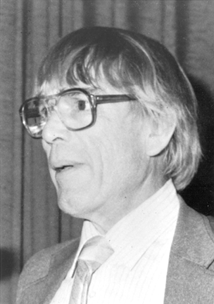 1927-1989
1927-1989
Ray Burger was born in Tulare, California. He graduated from Lindsay Senior High School in 1945 and attended UC Berkeley, receiving a BS in Chemistry in 1950 and a PhD in Endocrinology in 1958. He began a post-doctoral position in the Poultry Science Department at the University of Minnesota, and in 1962 was promoted to Associate Professor. He was heavily recruited to fill a faculty position in the Avian Sciences Department at UC Davis and in 1964 he began his career here.
Ray's early work focused primarily on avian growth and metabolism. Because of the intimate connection between metabolism and respiration, his research eventually drew him into the area of respiratory control. In the late 1960's, Ray was one of two pioneers who independently elucidated the presence of CO2-sensative chemoreceptors in the lungs of birds. The other pioneer was a former graduate student of his from U Minnesota, a great tribute to his mentoring. Ray work was diverse, involving the following areas of avian physiology: circulation, heat stress, cold acclimatization, growth, reproduction, and egg shell deposition.
At a time when computers were not in common usage by faculty, Ray taught courses in computer applications for faculty, staff, students, and administrators and was involved in setting up the first local area network in the Vice Chancellor's office. In 1981, Ray and a graduate student published a least-cost analysis program for feed formulations in the poultry and livestock industries, that has not only been used by industry but also as a teaching tool all over the world.
Perhaps the greatest mark of scholarship is the legacy that carries on after the scholar. Ray's former graduate students now have faculty positions at institutions like Harvard, Oxford, and the University of California. An advanced systemic physiology laboratory course that he set up in the late 1960's remains a cornerstone of the Neurophysiology, Physiology, and Behavior department. Similar courses cropped up all over the nation in the '70's and '80's as his former TAs emulated his dedication to and enthusiasm for teaching.
Those who knew Ray Burger could immediately recognize the landmarks of scholarship. Over his lifetime he did a great deal to advance the field of avian physiology, not only from the standpoint of conducting applicable research, but in terms of drawing the attention of distinguished scholars in other fields.
